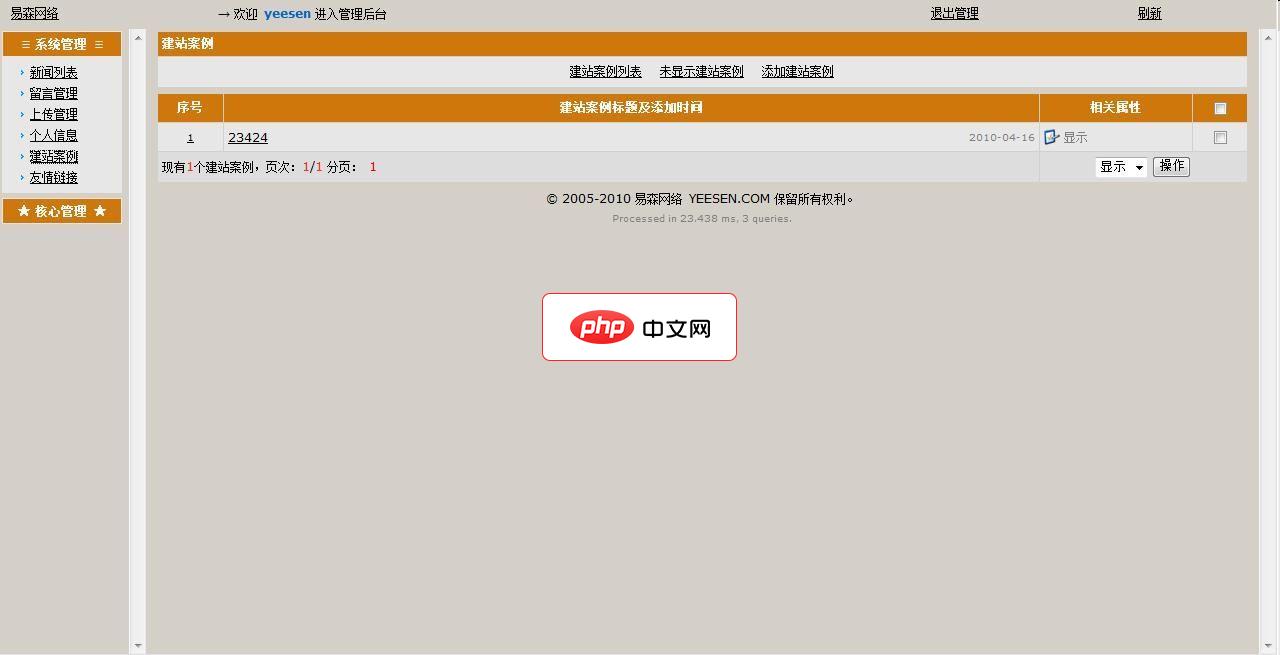C++中遍历文件夹需根据操作系统选择POSIX或Windows API方法,前者使用dirent.h读取目录项并递归处理子目录,后者通过FindFirstFile/FindNextFile实现类似功能;为避免无限循环需跳过"."和"..";可结合access()或GetFileAttributes()处理权限问题;遍历大型目录时可通过多线程、异步I/O、缓存结构和减少属性查询优化性能;过滤特定类型文件可通过检查扩展名实现,如使用rfind()提取后缀匹配.txt文件。

C++中遍历文件夹,核心在于利用系统提供的API来读取目录结构,并逐一处理找到的文件或子目录。这需要用到一些特定的头文件和函数,比如
(在POSIX系统上)或者Windows API中的相关函数。
解决方案:
在C++中遍历一个文件夹中的所有文件,可以使用不同的方法,取决于你的操作系统和需求。这里提供两种常见的方法:一种使用POSIX标准(适用于Linux和macOS),另一种使用Windows API。
1. 使用POSIX标准(dirent.h):
立即学习“C++免费学习笔记(深入)”;
#include#include #include #include #include void traverseDirectory(const std::string& dirPath) { DIR *dir; struct dirent *ent; if ((dir = opendir(dirPath.c_str())) != NULL) { while ((ent = readdir(dir)) != NULL) { if (strcmp(ent->d_name, ".") != 0 && strcmp(ent->d_name, "..") != 0) { std::cout << dirPath << "/" << ent->d_name << std::endl; // 检查是否为目录,如果是,则递归调用 std::string fullPath = dirPath + "/" + ent->d_name; DIR *subdir = opendir(fullPath.c_str()); if (subdir != NULL) { closedir(subdir); traverseDirectory(fullPath); } } } closedir(dir); } else { perror("Could not open directory"); } } int main() { std::string directoryPath = "/path/to/your/directory"; // 替换为你的目录路径 traverseDirectory(directoryPath); return 0; }
这段代码首先尝试打开指定的目录。如果成功,它会循环读取目录中的每一个条目。
readdir函数返回一个
dirent结构体,其中包含了条目的名称。为了避免无限循环,代码会跳过
.(当前目录)和
..(父目录)这两个特殊条目。对于每一个非特殊条目,代码会打印出它的完整路径。此外,代码会检查该条目是否为目录,如果是,则递归调用
traverseDirectory函数来遍历该子目录。如果目录无法打开,代码会打印出一个错误信息。
2. 使用Windows API:
#include#include #include #include void traverseDirectory(const std::string& dirPath) { std::string searchPath = dirPath + "\\*"; WIN32_FIND_DATA findData; HANDLE hFind = FindFirstFile(searchPath.c_str(), &findData); if (hFind == INVALID_HANDLE_VALUE) { std::cerr << "FindFirstFile failed (" << GetLastError() << ")" << std::endl; return; } do { if (strcmp(findData.cFileName, ".") != 0 && strcmp(findData.cFileName, "..") != 0) { std::string fullPath = dirPath + "\\" + findData.cFileName; std::cout << fullPath << std::endl; if (findData.dwFileAttributes & FILE_ATTRIBUTE_DIRECTORY) { traverseDirectory(fullPath); // 递归调用 } } } while (FindNextFile(hFind, &findData) != 0); FindClose(hFind); } int main() { std::string directoryPath = "C:\\path\\to\\your\\directory"; // 替换为你的目录路径 traverseDirectory(directoryPath); return 0; }
这段Windows代码首先构造一个搜索路径,该路径包含了目录路径和一个通配符
\*,用于匹配目录中的所有文件和子目录。然后,它使用
FindFirstFile函数来开始搜索。如果搜索成功,它会循环调用
FindNextFile函数来获取目录中的每一个条目。与POSIX示例类似,代码会跳过
.和
..这两个特殊条目。对于每一个非特殊条目,代码会打印出它的完整路径。此外,代码会检查该条目是否为目录,如果是,则递归调用
traverseDirectory函数来遍历该子目录。最后,代码使用
FindClose函数来关闭搜索句柄。
如何处理遍历过程中遇到的权限问题?
处理权限问题通常需要结合操作系统提供的权限管理机制。在POSIX系统中,可以使用
access()函数来检查当前用户是否具有读取、写入或执行某个文件的权限。在Windows系统中,可以使用
GetFileAttributes()函数来获取文件的属性,并检查是否设置了只读属性。如果在遍历过程中遇到权限不足的错误,可以尝试以管理员权限运行程序,或者修改文件的权限设置。
遍历大型目录时,如何优化性能?
遍历大型目录时,性能瓶颈通常在于磁盘I/O。为了优化性能,可以考虑以下几种方法:
- 使用多线程: 将目录分割成多个子目录,并使用多个线程同时遍历这些子目录。
- 使用异步I/O: 使用异步I/O操作可以避免阻塞主线程,从而提高程序的响应速度。
- 缓存目录结构: 将目录结构缓存到内存中,可以减少磁盘I/O的次数。
- 避免不必要的文件属性查询: 尽量避免在遍历过程中查询文件的属性,除非确实需要这些信息。
如何过滤特定类型的文件?
在遍历目录时,经常需要过滤掉特定类型的文件,只处理感兴趣的文件。这可以通过检查文件的扩展名来实现。在POSIX系统中,可以使用
std::string::rfind()函数来查找文件名的最后一个
.字符,然后提取扩展名并进行比较。在Windows系统中,可以使用
PathFindExtension()函数来获取文件的扩展名。
例如,只处理
.txt文件的POSIX代码:
#include#include #include #include #include void traverseDirectory(const std::string& dirPath) { DIR *dir; struct dirent *ent; if ((dir = opendir(dirPath.c_str())) != NULL) { while ((ent = readdir(dir)) != NULL) { if (strcmp(ent->d_name, ".") != 0 && strcmp(ent->d_name, "..") != 0) { std::string filename = ent->d_name; size_t dotPos = filename.rfind("."); if (dotPos != std::string::npos && filename.substr(dotPos + 1) == "txt") { std::cout << dirPath << "/" << ent->d_name << std::endl; } // 检查是否为目录,如果是,则递归调用 std::string fullPath = dirPath + "/" + ent->d_name; DIR *subdir = opendir(fullPath.c_str()); if (subdir != NULL) { closedir(subdir); traverseDirectory(fullPath); } } } closedir(dir); } else { perror("Could not open directory"); } } int main() { std::string directoryPath = "/path/to/your/directory"; // 替换为你的目录路径 traverseDirectory(directoryPath); return 0; }
这段代码在打印文件路径之前,会先检查文件的扩展名是否为
.txt。只有当扩展名匹配时,才会打印文件路径。





























